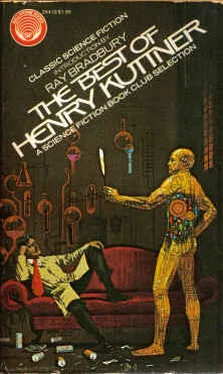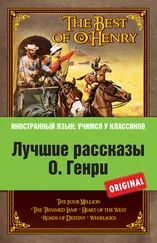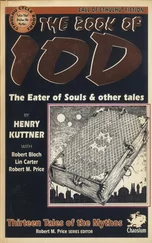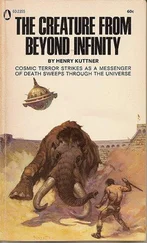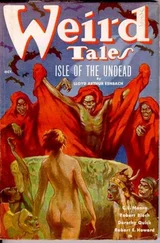“Jewelers?” Carmichael asked silently. “But why what you need?” He pictured millionaires miserably despondent for lack of a matched pearl necklace, heiresses weeping inconsolably because they needed a few star sapphires. The principle of luxury merchandising was to deal with the whipped cream of supply and demand; few people needed diamonds. They merely wanted them and could afford them.
“Or the place might sell jinni flasks,” Carmichael decided. “Or magic wands. Same principle as a Coney carny, though. A sucker trap. Bill the Whatzit outside and people will pay their dimes and flock in. For two cents—”
He was dyspeptic this morning, and generally disliked the world. Prospect of a scapegoat was attractive, and his press card gave him a certain advantage. He opened the door and walked into the shop.
It was Park Avenue, all right. There were no showcases or counters. It might be an art gallery, for a few good oils were displayed on the walls. An air of overpowering luxury, with the bleakness of an unlived-in place, struck Carmichael.
Through a curtain at the back came a very tall man with carefully combed white hair, a ruddy, healthy face and sharp blue eyes. He might have been sixty. He wore expensive but careless tweeds, which somehow jarred with the decor.
“Good morning,” the man said, with a quick glance at Carmichael’s clothes. He seemed slightly surprised. “May I help you?”
“Maybe.” Carmichael introduced himself and showed his press card.
“Oh? My name is Talley. Peter Talley.”
“I saw your sign.”
“Oh?”
“Our paper is always on the lookout for possible writeups. I’ve never noticed your shop before—”
“I’ve been here for years,” Talley said.
“This is an art gallery?”
“Well-no.”
The door opened. A florid man came in and greeted Talley cordially. Carmichael, recognizing the client, felt his opinion of the shop swing rapidly upward. The florid man was a Name-a big one.
“It’s a bit early, Mr. Talley,” he said, “but I didn’t want to delay. Have you had time to get-what I needed?”
“Oh, yes. I have it. One moment.” Talley hurried through the draperies and returned with a small, neatly wrapped parcel, which he gave to the florid man. The latter forked over a check-Carmichael caught a glimpse of the amount and gulped-and departed. His town car was at the curb outside.
Carmichael moved toward the door, where he could watch. The florid man seemed anxious. His chauffeur waited stolidly as the parcel was unwrapped with hurried fingers.
“I’m not sure I’d want publicity, Mr. Carmichael,” Talley said. “I’ve a select clientele-carefully chosen.”
“Perhaps our weekly economic bulletins might interest you.”
Talley tried not to laugh. “Oh, I don’t think so. It really isn’t in my line.”
The florid man had finally unwrapped the parcel and taken out an egg. As far as Carmichael could see from his post near the door, it was merely an ordinary egg. But its possessor regarded it almost with awe. Had Earth’s last hen died ten years before, the man could have been no more pleased. Something like deep relief showed on the Floridatanned face.
He said something to the chauffeur, and the car rolled smoothly forward and was gone.
“Are you in the dairy business?” Carmichael asked abruptly.
“Do you mind telling me what your business is?”
“I’m afraid I do, rather,” Talley said.
Carmichael was beginning to scent a story. “Of course, I could find out through the Better Business Bureau—”
“You couldn’t.”
“No? They might be interested in knowing why an egg is worth five thousand dollars to one of your customers.”
Talley said, “My clientele is so small I must charge high fees. You-ah-know that a Chinese mandarin has been known to pay thousands of taels for eggs of proved antiquity.”
“That guy wasn’t a Chinese mandarin,” Carmichael said.
“Oh, well. As I say, I don’t welcome publicity—”
“I think you do. I was in the advertising game for a while. Spelling your sign backwards is an obvious baited hook.”
“Then you’re no psychologist,” Talley said. “It’s just that I can afford to indulge my whims. For five years I looked at that window every day and read the sign backwards-from inside my shop. It annoyed me. You know how a word will begin to look funny if you keep staring at it? Any word. It turns into something in no human tongue. Well, I discovered I was getting a neurosis about that sign. It makes no sense backwards, but I kept finding myself trying to read sense into it. When I started to say ‘Deen uoy tahw evah ew’ to myself and looking for philological derivations, I called in a sign painter. People who are interested enough still drop in.”
“Not many,” Carmichael said shrewdly. “This is Park Avenue. And you’ve got the place fixed up too expensively. Nobody in the low-income brackets-or the middle brackets-would come in here. So you run an upper-bracket business.”
“Well,” Talley said, “yes, I do.”
“And you won’t tell me what it is?”
“I’d rather not.”
“I can find out, you know. It might be dope, pornography, high-class fencing—”
“Very likely,” Mr. Talley said smoothly. “I buy stolen jewels, conceal them in eggs and sell them to my customers. Or perhaps that egg was loaded with microscopic French postcards. Good morning, Mr.
Carmichael.”
“Good morning,” Carmichael said, and went out. He was overdue at the office, but annoyance was the stronger motivation. He played sleuth for a while, keeping an eye on Talley’s shop, and the results were thoroughly satisfactory-to a certain extent. He learned everything but why. Late in the afternoon, he sought out Mr. Talley again.
“Wait a minute,” he said, at sight of the proprietor’s discouraging face. “For all you know, I may be a customer.”
Talley laughed.
“Well, why not?” Carmichael compressed his lips. “How do you know the size of my bank account?
Or maybe you’ve got a restricted clientele?”
“No. But—”
Carmichael said quickly, “I’ve been doing some investigating. I’ve been noticing your customers. In fact, following them. And finding out what they buy from you.”
Talley’s face changed. “Indeed?”
“Indeed. They’re all in a hurry to unwrap their little bundles. So that gave me my chance to find out.
I missed a few, but-I saw enough to apply a couple of rules of logic, Mr. Talley. item: your customers don’t know what they’re buying from you. It’s a sort of grab bag. A couple of times they were plenty surprised. The man who opened his parcel and found an old newspaper clipping. What about the sunglasses? And the revolver? Probably illegal, by the way-no license. And the diamond -it must have been paste, it was so big.”
“M-mmm,” Mr. Talley said.
“I’m no smart apple, but I can smell a screwy setup. Most of your clients are big shots, in one way or another. And why didn’t any of ’em pay you, like the first man-the guy who came in when I was here this morning?”
“It’s chiefly a credit business,” Talley said. “I’ve my ethics. I have to, for my own conscience. It’s responsibility. You see, I sell-my goods-with a guarantee. Payment is made only if the product proves satisfactory.”
“So. An egg. Sunglasses. A pair of asbestos gloves-I think they were. A newspaper clipping. A gun.
And a diamond. How do you take inventory?”
Talley said nothing.
Carmichael grinned. “You’ve an errand boy. You send him out and he comes back with bundles.
Maybe he goes to a grocery on Madison and buys an egg. Or a pawnshop on Sixth for a revolver. Orwell, anyhow, I told you I’d find out what your business is.”
Читать дальше
